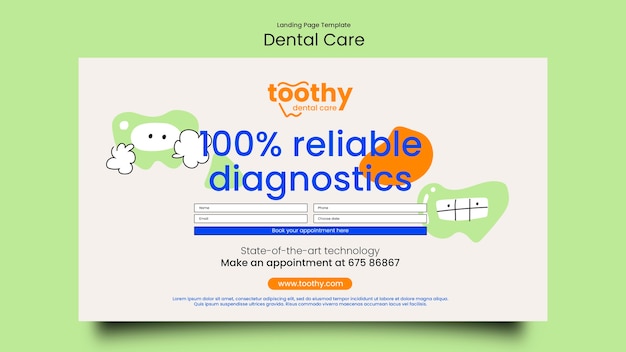
Taking care of your oral hygiene is something everyone should prioritize to avoid dental problems in the future. However, women are particularly vulnerable to oral health issues due to the hormonal changes they experience at various stages of life, including puberty, menstruation, pregnancy, and menopause. These changes can impact oral health significantly, so it’s crucial for women to pay extra attention to their dental care during these times.
Hormonal fluctuations during such life stages can lead to gum sensitivity, swelling, and other dental concerns. That’s why it’s important for women to maintain good oral hygiene habits, such as brushing twice a day, using mouthwash, and visiting a dentist regularly. Ignoring even minor dental problems can escalate into serious health issues like gum disease, mouth cancer, or respiratory problems.
### Common Dental Issues Women Face
Women often face dental problems such as tooth sensitivity, gum issues, bad breath, and severe toothaches. Addressing these problems early can prevent them from developing into more complex issues. Regular checkups and timely treatment are essential to maintaining oral health.
### How Different Life Stages Affect Women’s Oral Health
**Puberty:**
During puberty, hormonal changes, especially an increase in progesterone and estrogen, can lead to increased blood flow to the gums. This can make the gums more sensitive, red, swollen, and prone to bleeding while brushing or flossing. Gingivitis often becomes more prevalent during this stage due to these hormonal shifts.
**Menstruation:**
From ages 9 to 16, as girls begin menstruation, hormonal fluctuations become more pronounced. Increased progesterone levels can result in issues like swollen salivary glands, bleeding gums, swollen or red gums, and even oral ulcers. These dental concerns typically occur a day or two before menstruation begins and subside once the cycle starts.
**Pregnancy:**
Pregnancy brings significant hormonal changes that can impact oral health, especially during the second to eighth months. Elevated progesterone levels during pregnancy may cause gum disease, a condition known as pregnancy gingivitis. Since the body becomes more vulnerable during pregnancy, dentists often recommend professional dental cleanings to prevent gum disease from advancing.
**Birth Control Pills:**
Contraceptive pills, though effective for family planning, can have side effects on oral health. Some pills contain hormones, such as progesterone, that can affect gum tissues. If you are on birth control, it’s a good idea to inform your dentist, as it could explain plaque buildup or gum sensitivity after certain treatments.
**Menopause:**
During menopause, declining estrogen levels can lead to a decrease in bone density, including the jawbone, resulting in weaker teeth and even tooth loss. Other menopause-related oral health issues include dry mouth caused by reduced saliva production, burning sensations, reduced tooth sensitivity, and gum disease. Regular dental checkups and maintaining hydration can help manage these problems effectively.
### Essential Tips for Maintaining Oral Health
To maintain good oral health, consider the following practices:
– Brush your teeth twice a day, once in the morning and again before bed. Brushing at night removes food particles and bacteria that accumulate throughout the day.
– Floss daily to clean between your teeth where brushes can’t reach.
– Use fluoride toothpaste to strengthen your teeth and prevent cavities.
– Include regular visits to the dentist, ideally once a month or as recommended, to detect and treat oral issues early.
– Maintain a balanced diet to promote healthy teeth and gums. Avoid sugary and starchy snacks, as they can increase sensitivity and promote cavities.
– Rinse your mouth thoroughly after meals to help remove food particles and bacteria.
– An antimicrobial mouthwash can be helpful for extra protection, but consult your dentist before use.
– For those with sensitivity, consider using specialized toothpaste recommended for sensitive teeth.
If you deal with dry mouth, consult a dentist about treatments that can help stimulate saliva production. Keeping your mouth hydrated is crucial to avoiding bacterial buildup and gum disease.
### Why Dental Problems Shouldn’t Be Ignored
Oral health plays a significant role in overall well-being. Ignoring dental problems can lead to severe complications in other areas of the body. Here are a few examples:
**Diabetes:**
There’s a strong link between gum disease and diabetes. Untreated gum infections can make it harder for diabetic patients to control their blood sugar levels. Conversely, people with diabetes are also more prone to oral infections. Regular oral care is essential for managing both conditions.
**Heart Disease:**
Studies have shown that women with untreated dental problems are at a higher risk of heart disease. Bacteria from the gums can enter the bloodstream and cause blockages, increasing the risk of heart attacks or other cardiovascular issues.
**Respiratory Issues:**
Bacteria in the gums can travel to the lungs, potentially causing respiratory infections like pneumonia. Addressing gum disease early reduces the risk of these complications.
**Stroke:**
Severe dental problems, when left untreated, can contribute to an increased risk of stroke due to the spread of bacteria through the bloodstream.
**Mouth Cancer:**
Neglected oral health issues can escalate and sometimes even lead to life-threatening conditions like oral cancer. Early detection and treatment are critical.
**Pregnancy Risks:**
Pregnant women with gum disease may face complications, including premature birth or low birth weight. Always inform your dentist and gynecologist about any oral health concerns to take appropriate preventive measures.
### Bottom Line
Throughout the different stages of a woman’s life, hormonal changes are inevitable. While these changes are natural, they can significantly affect oral health, making women more susceptible to dental problems. The best way to protect yourself is to stay consistent with oral hygiene practices like brushing, flossing, and regular dental checkups. By taking these simple steps, women can prevent dental problems and improve their overall health and quality of life. A little care each day can go a long way in ensuring healthy teeth and gums for years to come.